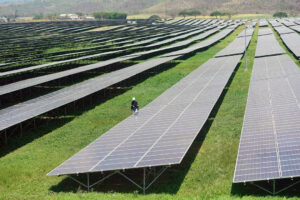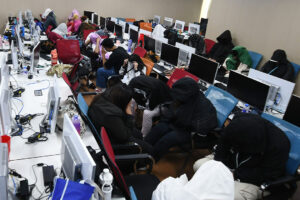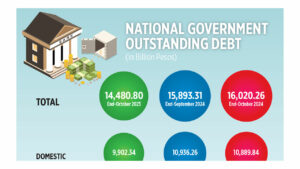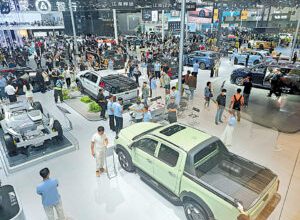House gives 2nd reading approval to zero-tariff bill for electric vehicles
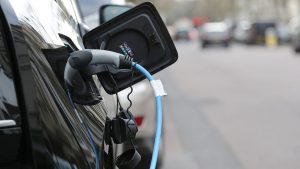
THE House of Representatives approved on second reading on Tuesday a bill seeking to exempt imported electric vehicles (EVs) from tariffs.
House Bill No. 10960 will impose zero tariffs on imported two-, three- or four-wheeled EVs and their charging equipment between 2025 and 2030, and calls for a review of the Strategic Investment Priority Plan to include incentives for importing EV manufacturing equipment.
“This proposed legislation represents a critical step towards a sustainable future. It will boost the EV market, generate much-needed jobs, and help the Philippines transition to a greener economy, aligning us with global climate goals,” Party-List Rep. Margarita Ignacia B. Nograles, who sponsored the bill out to the plenary, said.
President Ferdinand R. Marcos, Jr. issued last year an executive order removing tariffs on EVs until 2028. It was subsequently expanded in May by the National Economic and Development Authority Board to include electric motorcycles, tricycles, and hybrid EVs.
The Department of Energy (DoE) has prepared a roadmap for wider EV adoption in the country to help ensure its transition towards a “sustainable… and… electrified transport sector.”
A DoE official said in September that a proposed EV incentives scheme, which would include fiscal and non-fiscal consumer incentives such as rebates and tax credits, is in the works and will likely be endorsed to Mr. Marcos by year’s end.
The Philippines aims to reduce greenhouse gas emissions by 75% by 2030, in line with commitments made under the 2021 Paris Agreement.
Analysts said the tariff exemption on imported EVs would reduce retail prices, benefiting consumers, but warned that the government should provide support to producers as they may lose out to imported competition, hampering the development of a domestic EV manufacturing industry, they added.
“There is nothing wrong with exempting foreign EVs from tariffs, but this only benefits consumers in the short term,” Leonardo A. Lanzona, an economics professor at the Ateneo de Manila, said via Messenger chat before the bill’s approval.
“The government should create a process of learning by assisting local manufacturers in creating unique brands,” he said. As such, the government should offer incentives for training and encourage foreign institutions to introduce efficient practices to manufacturers, he added.
“Without complementary industrial support and protection measures for Filipino firms, the direction is to create dependency on imports from the world’s major EV exporters,” Jose Enrique A. Africa, executive director at think-tank IBON Foundation, said via Viber.
He called for subsidies and incentives for EV manufacturers to help them establish assembly plants, he added, citing the need to develop expertise in manufacturing technology.
The government should also look at supporting efforts to construct EV charging facilities to help boost adoption, Terry L. Ridon, a public investment analyst and convener of think-tank InfraWatch Ph, said.
“Massive EV adoption may be delayed by limited public charging stations in metropolitan areas and along national highway routes for longer journeys,” he said via Facebook chat before the bill’s approval.
“Without adequate public charging facilities, EV adoption will be limited to users living in houses and townhouses with home charging units, and those working in office buildings with public charging facilities,” he added. — Kenneth Christiane L. Basilio
